'I lost my wife and unborn daughter to sepsis'
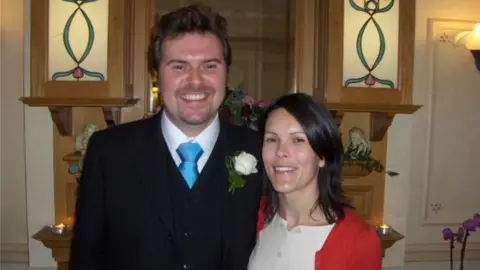 Craig Stobo
Craig StoboFive years ago Craig Stobo suddenly lost his wife and unborn daughter to a condition he knew nothing about - and he almost died himself.
His wife Fiona was a GP in Bo'ness and it was her concern at Craig's symptoms that led him to seek medical help.
Fiona, who was 35 weeks pregnant with their second child, phoned him as she was on the way for an antenatal scan.
Craig was meant to have attended the scan but he told her he was feeling unwell with a severe headache and nausea.
His doctor wife was concerned that it did not sound like a cold or flu and said he needed to get checked out quickly.
When he did, Craig was diagnosed with sepsis and immediately treated with intravenous antibiotics.
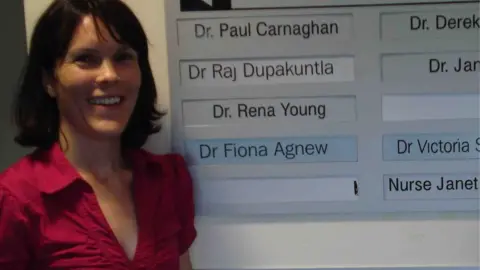 Craig Stobo
Craig StoboHowever the next day, while he was still in hospital in Edinburgh he learned that 38-year-old Fiona had also been taken ill with the same condition.
Both Craig and Fiona developed septic shock but, possibly because she was pregnant, doctors could not save her.
Craig, who is now 47, says: "We lost our daughter, she was stillborn.
"She was literally the first part of Fiona's system to shut down.
"The medics then battled for a further 24 hours to try to save Fiona but without success."
The cause of the illness was never established.
Craig says he was "bewildered" by what had happened.
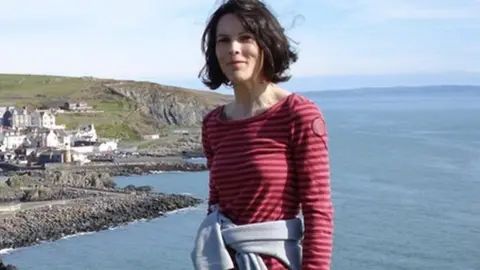 Craig Stobo
Craig Stobo"Fiona was perfectly fit and healthy, as was I, and it happened so quickly that it was profoundly shocking and devastating," he says.
It is estimated Sepsis kills about 44,000 people every year in the UK - more than breast, bowel and prostate cancer combined.
It is caused when the body's immune system overreacts to infection.
In Scotland, the government quotes the figure of 3,500 deaths although statisticians admit it is an estimate and they do not know the full picture.
Experts agree that the key to lower mortality rates is early diagnosis and treatment within an hour if possible.
For each hour that passes the chances of survival lower considerably.
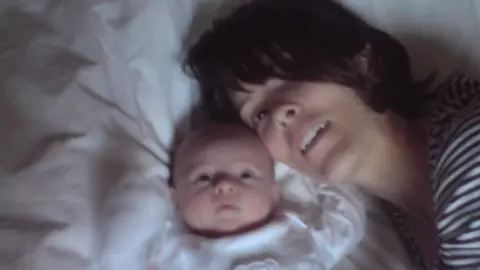 Craig Stobo
Craig StoboCraig is now the chairman and trustee of the Fiona Elizabeth Agnew Trust (FEAT), the Scottish sepsis charity he set up in his wife's memory.
Unlike his wife, Craig's background was in tax law so he says that he had only vaguely heard of blood poisoning and septicaemia before that day in 2012.
"I started asking a lot of questions of the medics to try to understand it," he says
"I heard about the figures for the number of people who were affected and I was horrified.
"I had never heard of this and I did not think that I was completely ignored.
"I thought 'how many other people have not heard of it?'.
"'How can people not have heard about something that affects so many people and is so devastating and so indiscriminate?'"
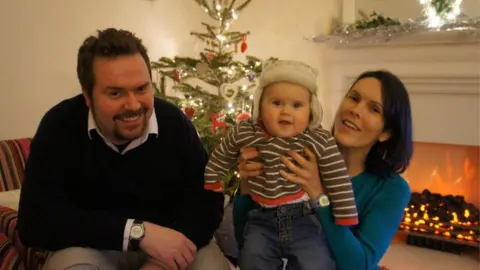 Craig Stobo
Craig StoboThe charity he set up has been campaigning to raise public awareness of the disease.
He says: "I am extremely fortunate to be here because I was diagnosed and treated very quickly.
"I owe my life to Fiona. She was a good doctor and a good mum.
"She was only 38. We had a lovely life together, we were very lucky and we had it all ahead of us.
"It all changed over the course of 62 hours and life literally had to be started again."
Craig's son Robert was just two when his mother died.
He says he has been honest with him at all times about what happened to his mother and sister.
"Frequently it was not easy, particularly in the very early stages," Craig says.
"It has been hard and there have been many long, dark nights of the soul but so far so good.
"He is a happy and active wee chap.
"We still talk about his mum. He knows he had a sister and we are completely open about that and I think it is the best way to be."
